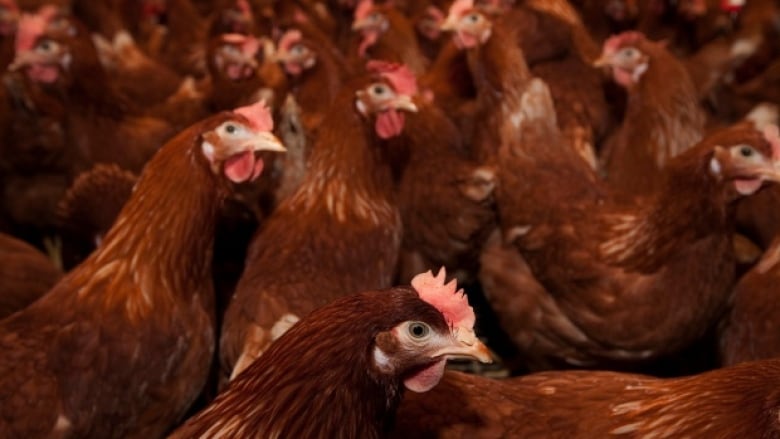NEHA BHATT
GURUGRAM, INDIA
SPECIAL TO THE GLOBE AND MAIL
DECEMBER 11, 2020
Open this photo in gallery
/cloudfront-us-east-1.images.arcpublishing.com/tgam/36VZEYV2TVOX3HGW3GUICBG5OE.jpg)
Indian farmers listen to speakers as they sit in a protest against the new farm laws on December 11, 2020 at the Delhi-Haryana state border, India.
YAWAR NAZIR /GETTY IMAGES
The protest against three big agricultural reforms in India has entered a third week, swelling into a historic, politically polarizing movement that has swept hundreds of thousands of farmers from their lands in the states of Punjab and Haryana to march to the borders of Delhi.
More than 300,000 farmers, camping along the highways at five major entry points to the capital city, have been demanding the rollback of “black laws” that were passed by the central government in September. The reforms, meant to liberalize agriculture, will allow farmers to sell crops to anyone, loosening the prevailing state-controlled market model to deregulate crop pricing, procurement and storage of agricultural produce. But farmers say the laws favour corporate interests by dismantling their bargaining power and will destroy their livelihoods. The government insists the laws are progressive and will double farmer income in two years.
Beyond the barricades put in place along the borders by the police, hundreds of makeshift tents pitched over trolleys and tractors and Sikh community kitchens have sprung up on long stretches of the highways, where the farmers gather, holding discussions and rallies, waving flags and raising slogans. “We will camp here as long as it takes for the government to scrap the laws, six months, a year … ,” said Onkar Singh, general secretary of the Bharatiya Kisan Union, one of the farmer groups from Punjab leading the protest. “There is no dearth of food or blankets to protect us from the cold. It is a collective movement with support pouring in from everywhere.”
The two sides are deadlocked. At first, as the farmers crowded around the borders of the capital city last month, the police used tear gas shells and water cannons to disperse them. The farmers called for a nationwide strike on Dec. 8. After multiple rounds of negotiations, farmers’ union leaders rejected the government’s proposal to amend the laws. The farmers said they will settle for no less than a repeal and are intensifying the movement, with thousands more joining in from the bordering states of Rajasthan and Madhya Pradesh. A nationwide protest is planned for Dec. 14, along with a blockade of railway tracks.
The agitation has steadily gained national and global attention, sparking protests in several Indian cities and in Canada, the United States and the United Kingdom, led by the Punjabi diaspora.
/cloudfront-us-east-1.images.arcpublishing.com/tgam/QLMLULCPBNKYBFGORRCWZOQ5WY.JPG)
Extending support, Prime Minister Justin Trudeau recently said “Canada will always be there to defend the right to peaceful protest.” The Indian foreign ministry called his comments “unacceptable interference in our internal affairs” adding, “We expect the Canadian Government to ensure the fullest security of Indian diplomatic personnel and its political leaders to refrain from pronouncements that legitimize extremist activism.”
Politicians belonging to the ruling Bharatiya Janata Party have attempted to discredit the protest publicly on multiple occasions. They’ve claimed the protests have “extremist Khalistani elements” (the Khalistan movement consists of Sikh separatists), and that the dissent is backed by Pakistan and China. Sections of the media and public have been distrustful too, calling it a “Punjab farmers’ protest” and not a national issue. A delegation of the major opposition parties, meanwhile, has stepped up support to the movement, officially asking for the laws to be struck down.
“What the farmers are demanding is Minimum Support Price (MSP), or an assured price, for 23 crops to be made a legal right, said food policy analyst and researcher Devinder Sharma, referring to commodities such as cereals, pulses, commercial crops, oilseeds.
“Only 6 per cent of farmers get the minimum pricing at the moment – most of them from Punjab and Haryana. The rest of the 94 per cent of farmers are not aware of it and are dependent on private markets already. So the benchmark, which is the assured price, must have a legal stamp.”
To add to the concerns, deregulating markets in states such as Bihar hasn’t shown any increase in farmer income.
Agriculture is the largest employer in India, taking up 50 per cent of the labour force and accounting for 17 per cent of the GDP.
“The cost of agricultural production has increased, and so has farmer debt, which is why MSP is very important to farmers,” said Inderjit Singh, Haryana vice-president of All-India Kisan Sangharsh Co-ordination Committee, which represents 250 farmers’ organizations. “Though the government has said MSP will remain, the fear is that the new laws will dilute the existing model and that agriculture will be taken over by the private sector, with a corporate takeover of farm land.”
Farmers have questioned the policy of “contract farming”, wherein they will have to produce what private companies demand, which they said will leave them at the mercy of corporations. Addressing the media, agriculture minister Narendra Singh Tomar said, “It is being projected that the land of farmers will be occupied by industrialists. Contract farming has been going on for long in Gujarat, Maharashtra, Haryana, Punjab, Karnataka,” but, he said, so far this has not come to pass in those regions.
“The farm bills are not an issue isolated to farmers,” said Preeti Sharma Menon, national spokesman for the Aam Aadmi Party, which is currently in power in the Delhi government. “Once the prices of commodities go up, it will affect all of us. The government has already sold all public-sector companies to corporates like the Adanis and Ambanis, and is now in the process of selling farmland.”
The anger on the streets, added Mr. Sharma, isn’t merely against the new legislation. “Agriculture has been deliberately impoverished and kept economically unviable, to push eople out from rural areas to provide cheaper labour in the cities. The Economy Survey 2016 found the average income for a farming family is 20,000 rupees [$345] a year. It tells you that over the years farmers have been deprived of the right price for their produce, and the anger has built up and is being channelled [toward] these central laws.”
/cloudfront-us-east-1.images.arcpublishing.com/tgam/QTHKSCNHL5NERPBY2QGQDNTUE4.jpg)













 Kaitlin Geiger-Bardswich was among a team of five people at the organization Women's Shelters Canada, which was tasked with distributing $20.5 million in federal COVID-19 aid to domestic violence shelters in the spring. (Brian Morris/CBC)
Kaitlin Geiger-Bardswich was among a team of five people at the organization Women's Shelters Canada, which was tasked with distributing $20.5 million in federal COVID-19 aid to domestic violence shelters in the spring. (Brian Morris/CBC)







 Werner Bernard says Eden Valley Poultry typically processes about 400,000 turkey and chicken weekly from producers in Nova Scotia and P.E.I. (Jonathan Hayward/Canadian Press)
Werner Bernard says Eden Valley Poultry typically processes about 400,000 turkey and chicken weekly from producers in Nova Scotia and P.E.I. (Jonathan Hayward/Canadian Press)